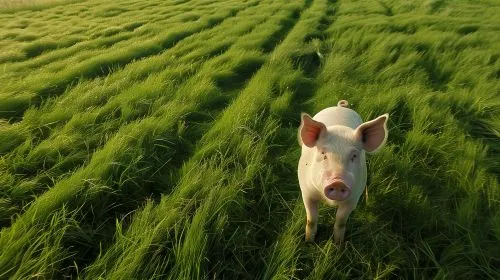713

Beef is often portrayed as one of the food products with the highest environmental footprint, but recent data offer a more nuanced picture.
According to FAO (2024), beef production accounts for approximately 14.5% of global greenhouse gas emissions from the agri-food sector, yet the contribution varies significantly between intensive and extensive farming systems.
In Europe, pasture-based farms have a lower impact due to the soil’s capacity to store carbon. Studies by the Joint Research Centre (JRC, 2024) show that ecologically managed farms can reduce emissions by up to 30% compared with industrial systems. At the same time, they support biodiversity and maintain soil fertility.
In Romania, cattle numbers have declined to 1.8 million head, according to the National Institute of Statistics (INS), but interest in sustainable production is growing. Projects funded through AFIR support farms adopting ecological technologies such as local feed, waste recycling systems, and digital emission monitoring.
The European Food Safety Authority (EFSA) recommends assessing the environmental impact of food based on the full life cycle of the product, not only on direct emissions. This includes transport, processing, and packaging. In this context, beef sourced from local farms has a smaller total footprint than beef imported from South America.
For Romania, the challenge remains strengthening the domestic production chain and accurately communicating the difference between impact and perception. Beef is not inherently incompatible with sustainability — it is a food that can coexist with climate goals, provided it is produced responsibly, locally, and transparently.
(Photo: Freepik)





